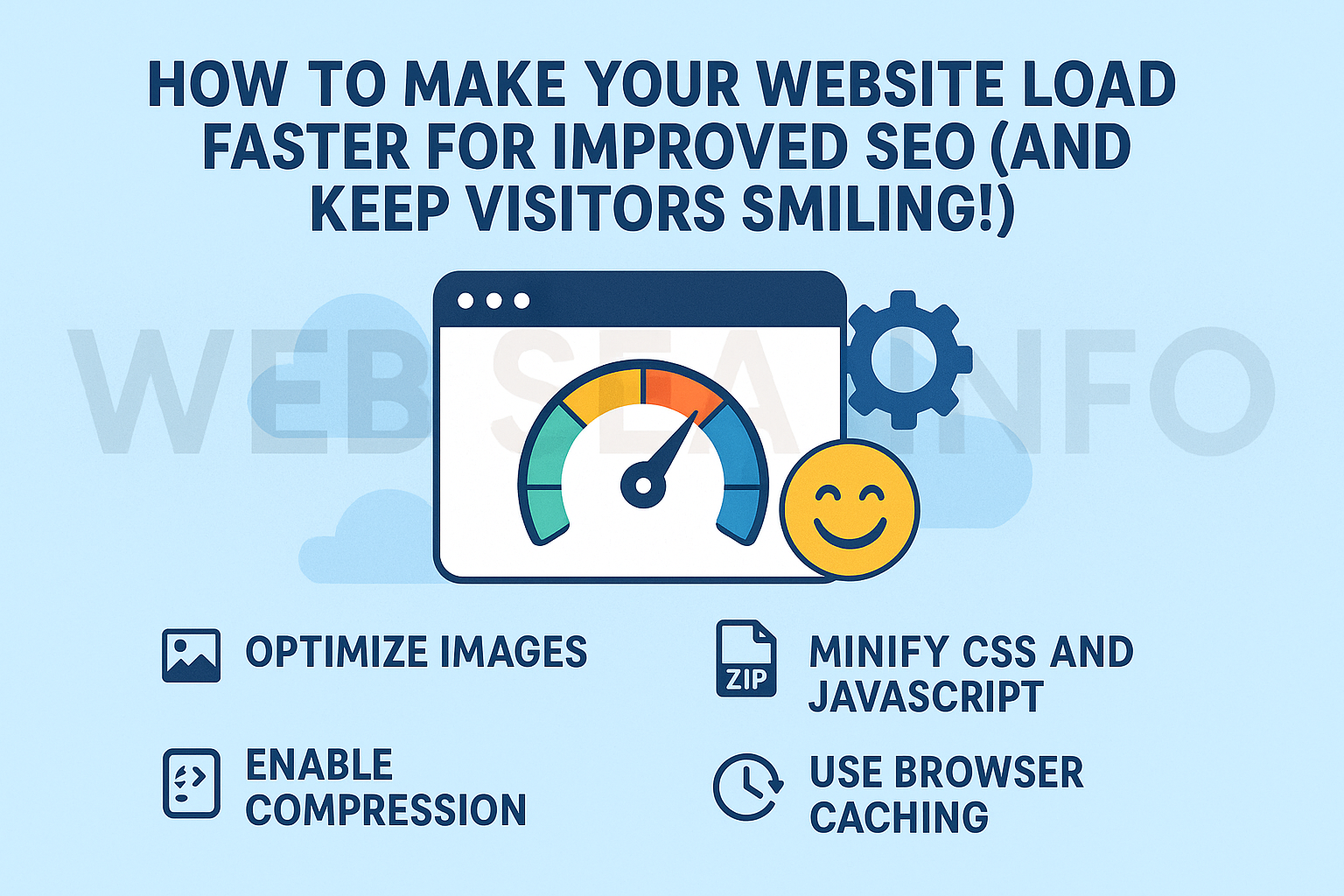Let's be honest—no one is a fan of a slow site. Not your visitors. Not your customers. And certainly not Google.
We are in an instant world. Everything's instant—coffee, deliveries, online searches. So when someone comes to your site and it takes a few seconds more to load. they're gone. Poof.
Actually, Google has even mentioned that site speed is a ranking signal—which means your slow website can actually damage your SEO.
But don't fret. In this blog, I'll take you through easy, actionable steps to make your website faster—without talking like a technical manual. We're keeping it friendly, straightforward, and effective. Let's get started! ⚡
🧠 Why Website Speed Matters (Especially for SEO)
Before we jump into the how, let's take a moment to grasp the why.
Here's the why website speed optimization matters:
- 🔍 Improved SEO ranking – Google favors fast websites.
- 📉 Reduced bounce rate – Users won't click away if your site is quick to load.
- 💰 More conversions – Faster sites = happier users = more sales.
- 📱 Mobile-friendliness – Speed is even more important on mobile.
🛠️ Step-by-Step Instructions to Speed Up Your Site
Let's dissect the top methods to speed up your site and gain that SEO advantage.
1. ✅ Opt for a Fast Web Host
Your web host is the foundation of your website. If it's slow, everything else will be slow.
- VPS (Virtual Private Server)
- Managed WordPress Hosting (e.g., Kinsta, SiteGround)
- Cloud Hosting (such as DigitalOcean, AWS)
Pro Tip: Test your server's response time with tools such as GTmetrix or Google PageSpeed Insights.
2. 📷 Compress and Optimize Images
Images are usually the bulkiest things on a webpage. Unoptimized images = long load time.
- Use formats such as WebP or compressed JPEG/PNG
- Use tools like TinyPNG, ImageOptim, or plugins like Smush
- Resize images to the correct size they’ll be shown
SEO Boost: Use descriptive filenames and alt tags to enhance image SEO but keep them light.
3. 💾 Enable Browser Caching
Browser caching caches parts of your website on the user's device. So when they come back, it loads quicker.
Use:
- .htaccess file (Apache servers)
- Caching plugins like WP Rocket or W3 Total Cache
4. 🧹 Minify CSS, JavaScript, and HTML
"Minifying" strips unnecessary spaces and comments from your files, making them lighter and faster.
Use plugins like Autoptimize, or online tools like Minifier.org.
5. 📉 Minimize HTTP Requests
- Combine CSS/JS files
- Use CSS sprites for icons/logos
- Remove unused plugins or scripts
6. 🌎 Utilize a Content Delivery Network (CDN)
A CDN speeds up delivery by serving content from the nearest server.
- Cloudflare (free option available)
- KeyCDN
- Amazon CloudFront
7. 🎛️ Clean Up Your Plugins and Themes
- Delete unused plugins/themes
- Use lightweight themes
- Avoid bloated page builders unless necessary
8. 🖼️ Lazy Load Images and Videos
Load images/videos only when they come into view.
- Use native
loading="lazy" - Try plugins like Lazy Load by WP Rocket
9. 🔍 Use Google PageSpeed Insights & GTmetrix
Use these tools to measure:
- Time to First Byte (TTFB)
- Largest Contentful Paint (LCP)
- Cumulative Layout Shift (CLS)
10. 📱 Improve Mobile Performance
- Avoid intrusive popups
- Ensure fast load on 4G/3G
- Make the site fully responsive
Test using Google’s Mobile-Friendly Test.
🚀 Speeding Up SEO Performance Bonus Tips
- ✅ Use semantic HTML
- ✅ Limit use of custom fonts
- ✅ Avoid auto-playing videos
- ✅ Disable unnecessary sliders/animations
- ✅ Consider AMP for blogs
✨ Last Thoughts: Speed = SEO Power
If your site is slow, it's not just frustrating—it's losing traffic, conversions, and rankings.
Start with image optimization, good hosting, and caching. Then move on to advanced stuff like minifying files, lazy loading, and CDNs.
💬 Got Questions?
Need help speeding up your site? Drop a comment or reach out—I’m happy to help!

